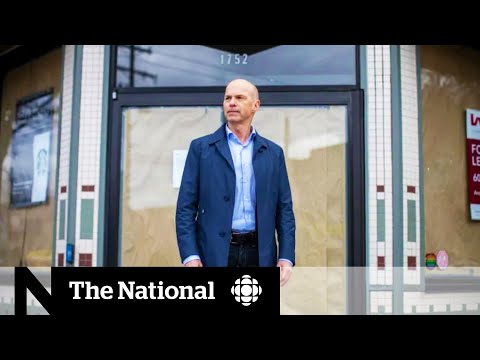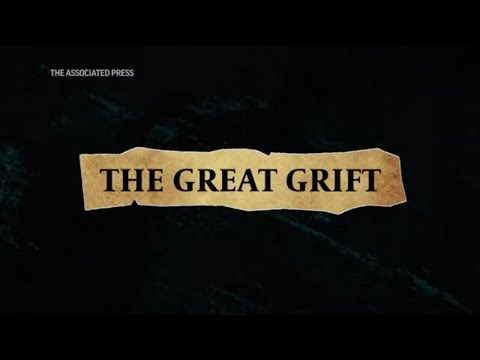Inflation is on its way up again, and it’s a top concern among voters in poll after poll.
But it doesn’t require a survey to know Americans are stressed when their money continues to buy less. What should also capture our attention? The underlying causes.
There are many, including the big-money pandemic relief programs that dumped huge amounts of government-borrowed, consumer-spent cash into the economy. It often didn’t go to those who actually needed it.
By now, there are tons of examples of pandemic aid going to individuals or business entities that were hardly struggling like the hourly-pay worker unable to do their shifts due to a workplace closure.

This is setting aside outright fraud that occurred, where money will hopefully be recouped. There are many examples of businesses that saw a boost from the pandemic but nevertheless took part in PPP, as outfits like ProPublica have pointed out.
There’s The Washington Post report on how a bunch of law firms received the maximum $10 million—somewhat baffling, since the pandemic hardly stopped the need for legal advice and, if anything. seems to have sparked a bevy of pandemic-related class actions as early as summer 2020.
But if bailouts for lawyers or profitable RV sellers might be seen sympathetically in at least some quarters, it’s pretty unlikely that bailouts for Hollywood moguls will be — yet it appears that companies tied to a big name in the music industry who recently bought Rod Stewart’s song catalog were big beneficiaries.
President Donald Trump started the process of dishing out pandemic aid– $3.2 trillion of it. President Biden then added another $1.9 trillion to that total.
Like the law firms that maxxed out with $10 million in aid, a business belonging to Irving Azoff—the mogul whose Iconic Artists Group bought the Rod Stewart catalog—did, too.
According to a now-public spreadsheet of grants on the SBA’s website, in August 2021, just two months after SBA began disbursing the funds, Azoff’s management company, Full Stop Management received its $10 million.
Critics of Azoff speculate that his businesses might actually have taken more than just that $10 million. They point to CAM LLC, which appears to be owned by Full Stop and registered at Azoff’s Glendon Avenue address in Los Angeles, having received nearly $7.5 million the following month.
Azoff, through his lawyer Marty Singer, has pushed back on the notion that anything untoward occurred here, telling Insider “that the companies complied with the SVOG program’s rules and that Azoff himself was not in need of any bailout funds.”
But of course, this is sort of the point with regard to all that COVID aid.

Many entities that most Americans would say didn’t need bailouts because, say, they were backed by Hollywood bigwigs who, in the midst of the pandemic were able to do things like buy $21.5 million properties in luxe neighborhoods (as Azoff did with one property in Beverly Hills in November 2021), still got money.
And most Americans understand on some level that money is fungible. Undoubtedly, Azoff didn’t need COVID aid personally. But the fact that his business(es) got it is unlikely to have hurt his bottom line.
Azoff advocated for pandemic aid targeted towards the music industry. In March 2020, he tweeted his thanks to Democrat Rep. Adam Schiff and Republican Sen. Lamar Alexander for their work to secure pandemic aid for the music industry. Azoff is also a Board Member of the Music Artists Coalition, which appealed for bailout money.
Azoff personally signed that letter.
Azoff’s Global Music Rights, represented by Greenberg Traurig, reported lobbying the U.S. House and Senate in the first and second quarters of 2020 on “legislative activity related to the COVID-19 pandemic and the federal governments [sic] response to the outbreak,” as well as “H.R. 748, CARES Act (P.L. 116-136)” and “H.R. 6800, The Heroes Act.”
Ultimately, the Save Our Stages Act—a vehicle for pandemic relief meant to target live venues—did include talent representatives, of which Azoff is one, among those eligible for aid.
What has Azoff and/or his businesses done with the money? Hopefully, yes, kept people employed through the pandemic who otherwise would not have been. But more broadly, and less scientifically or forensically, your answer to that may depend on exactly how fungible you think money is.
What is known is that Azoff, through Iconic Artists Group—which incidentally was founded in the same year the pandemic kicked off, 2020—has since the pandemic purchased Graham Nash’s catalog, Cher’s catalog, Dan Fogelberg’s, Joe Cocker’s, Linda Ronstadt’s, David Crosby’s, and even Dean Martin and Nat King Cole’s catalogs—plus, of course, that of Stewart.
Rod Stewart, the star behind hits like “Maggie May” and “Da Ya Think I’m Sexy,” has sold his song catalog as the music-rights market draws a flurry of fresh capital https://t.co/sFBQImaz6q https://t.co/sFBQImaz6q
— The Wall Street Journal (@WSJ) February 15, 2024
Oh, and that Beverly Hills mansion whose price certainly does attest to the fact that Azoff himself was not in need of a bailout.
Ultimately, the point is this: Ordinary Americans are still bearing the cost of all of this imprecise and unevenly doled out aid in the form of high prices – inflation driven in part by spending that, at least in hindsight, looks excessively high.
It’s not the only cause of our continuing inflation, it must be stressed – there has been abundant mismanagement at the highest levels in the years since COVID-19 hit and in failing to take smart actions on what drives those rising prices.
But it’s a big force behind it nevertheless. And it’s regular Americans who continue to be hurt.
If you’re a lawyer pulling down six figures or a Hollywood mogul buying up music catalogs here, there, and everywhere, that might not matter. That’s The Power of Gold. But if you’re a normal person, frustrated with milk prices still running well above their pre-pandemic $3.20 a gallon at close to $4 a gallon, you probably have a different take.
You might feel the government has been all too happy to dish out money to everyone but the people hurt the most by the government’s own pandemic policies. Truth is, it just doesn’t sit right watching the rich get a Little Help From Their Friends while small businesses and everyday working Americans are left with just the Tracks of Their Tears.
Caleb Howe is an editor and writer focusing on politics and media. Former managing editor at RedState, he has been published at USA Today, Blaze, National Review, The Daily Wire, American Spectator, AOL News, Asylum, fortune cookies, manifestos, napkins and fridge drawings.
The post Here’s Why We Can’t Forget Hollywood’s Pandemic Bailouts appeared first on Hollywood in Toto.
0 Comments